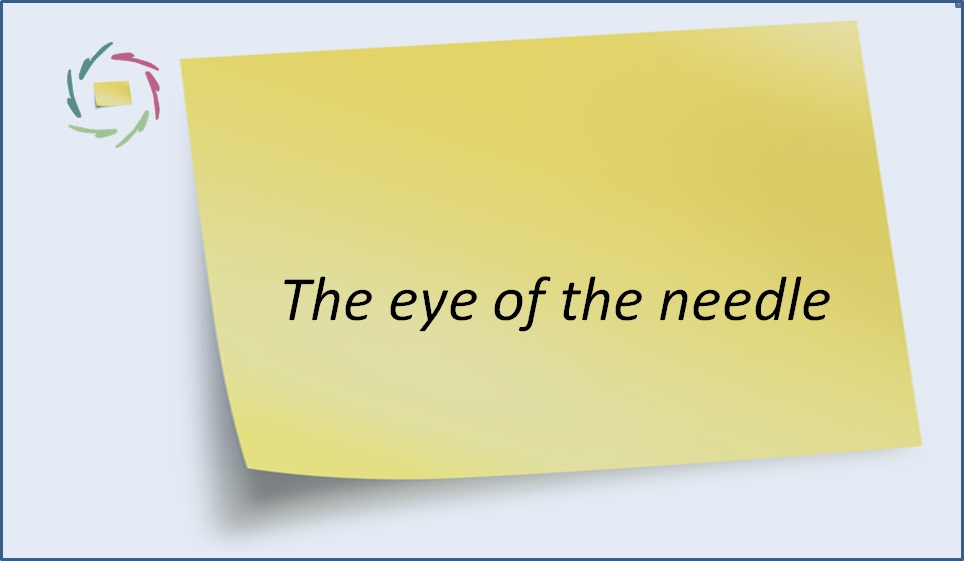71. The eye of the needle

Experimental scientists want to ‘prove’ the effect of acupuncture by using their experimental scientists’ schemes. What has come out of the experimentation with acupuncture is that it works… sometimes.
◊◊◊
Even so, if one doesn’t care exactly what works, then the case seems to be in favor of the needlers… sometimes. However, if one goes deeper into it, it becomes equally clear that in any case it doesn’t matter where the needles are inserted. It’s enough if someone sticks them somewhere. This is sticky indeed. Meridians don’t matter. Moxa doesn’t matter. Theories don’t matter but for one thing: their being ‘very respectable’ theories.
◊◊◊
To me, such theories are not respectable at all.
Wow.
◊◊◊
So what works? Look at the situation. You even don’t have to look further than that. Keep at the situation. What works is the situation, the complete pattern: needles + needler + the poster on the wall with a very ancient-looking old-and-wise-guy + a whole bunch of expectations coming from who-knows-where + hope + etc. I think it’s obvious: this is not just about some needles.
◊◊◊
In case you think I will make autosuggestion pop up at this moment, you are very right. This said, it’s done. But I also want to look specifically at two things about the needling itself, namely: where it came from and where it went to. I want to go right through the eye of the needle.
◊◊◊
Where it came from. The Chinamen who developed acupuncture must have been extremely sophisticated in their observations over many centuries. They inserted needle after needle and saw what worked and what did not. They kept all this wisdom in their ancient books and passed it on to their successors, who themselves made more observations, wrote more books, etc. Very good!
◊◊◊
However, they did not see that epidemics of hepatitis swaying through the East were due to the lack of hygiene with which the needles were inserted in one yellow fellow after another. So actually… I’m not impressed at all by their supposed sophistication. I even think that my previous sentence proves quite the reverse. That shouldn’t be a surprise. Experimental science is very hard now. It was too hard then.
◊◊◊
Where it went to. When the needles were transported from Eastern minds to Western thinking, they became senseless material pieces of metal. The meridians became something like electricity cables. The Eastern ‘Chi’ that is so central to acupuncture, became a kind of Western energy that is still not measurable but ‘will soon become so’.
◊◊◊
I dare say: this has nothing to do with the ancient art of acupuncture, in which the needles weren’t needles but ‘symbols’ in the form of needles. It’s always the same mistake. If one doesn’t see content, one only sees form. But form without content is nothing. It’s not even form. Tell me: of what would it be form?
◊◊◊
The West has truly made a big mess of this.
◊◊◊


